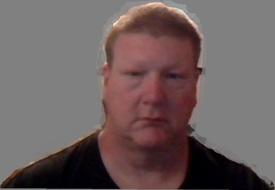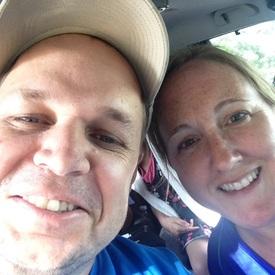Do you eat back your calories?

Nightmare_Queen88
Posts: 304 Member
I've never eaten back my calories. Maybe I should but I don't. The main reason is I don't know what to eat to get those calories back. But do you really even need to eat those calories back? Isn't the whole point of exercising to burn off calories? So eating them back seems kinda redundant. Or that just me. I am still new to this so keep that mind and try not to bite my head off. 
1
Replies
-
That makes sense! Would be interesting to see what people say xx0
-
I eat most of my exercise calories back because I'm already at a 1000kcal deficit. If I didn't eat calories back, I would have had a 2000kcal deficit yesterday. I don't enjoy the light headedness and fatigue that comes with doing that several days in a row.5
-
Mindful calories. If you're going to really put in time at the gym, specifically if you're lifting you need the protein to help your muscles repair. Here's a bit from bodybuilding
Following your workout it's a good idea to take in small meals containing high protein in about three to four hour intervals, thereby providing your muscles with a constant supply of protein to help your muscles heal. It is also vital to take in a protein drink or a slow burning protein (such as cottage cheese) before you go to bed therefore providing your muscles with protein, since your body will be slowly depleted of protein as you sleep. Breakfast is a key meal as well, because your body awaits nourishment after sleeping for 8-12 hours. One of the best tips of advice I can give you though, is to eat consistently, day in and day out.3 -
Well the point of exercise is actually to get your body in better shape, so you need to refuel in order to keep up your strength. That being said, I only eat back my calories if I had a huge workout 500+ calories burned, and then I still won't eat back all of it, unless I'm feeling like I need it.1
-
I was, but as of yesterday decided to stop--because as you mentioned--it's redundant. Plus, I want to build up an excess of negative calories so that I can somewhat enjoy a happy hour, or vacation, or piece of birthday cake. Great thread.0
-
Nightmare_Queen88 wrote: »Isn't the whole point of exercising to burn off calories?
Not for me. It's to do fun things, meet goals (like running a marathon), and to get more fit (not the same thing as just losing weight). To accomplish those things, adequate fueling is necessary.
But the bigger issue is that there's a range of sensible, healthful deficits that will help preserve muscle mass and keep you feeling good. Depending on how much you have to lose and how big you are, they top out at around 1% of weight or 2 lbs or less if you are smaller (possibly more if bigger, but if you have a huge deficit you should really be under medical care).
Some methods start with what you were eating before losing weight and suggest cutting calories and adding exercise to create a deficit. I did this once, estimated my calories at 2100, so cut 500 (to give me 1600) and then upped my exercise and ended up losing 2 lbs a week.
MFP does it a different way. It figures out what your maintenance is WITHOUT exercise and then cuts off the whole deficit. For example, if maintenance without exercise were 2200, you'd get 1200 for 2 lbs. But that is supposed to be the maximum healthy deficit, so if you exercise (raising the maintenance calories), you'd also add back calories. To put it another way, if your maintenance without exercise is 2200 and you do 300 calories worth of exercise, your new maintenance is 2500. 1000 calories off that is 1500. MFP adjusts once you tell it you actually did exercise.2 -
I'm not an expert, but I've heard that it's better to exercise because it speeds your metabolism and creates muscle which helps burn fat. In my case, I'm "skinny fat" and the only way for me to get a better body is to do strengthening/weight lifting exercises. Again I'm no expert, these are just things I've heard lol. Maybe someone will have a better answer!0
-
Eating exercise calories back is how MFP is designed. You were given a deficit with zero exercise factored in.
Now, things to consider. How aggressive is your weekly weight loss goal? How much time do you spend exercising? If it's a walk here or there and your weekly goal is modest (1% of body weight per week) then not fueling workouts isn't a big deal. But if you are at 1200 (a default minimum).....and working out for several hours a week, then eating back exercise calories is going to be more important.
Weight loss = fat+water+lean muscle loss. Keeping the deficit moderate is one of the things that gives your body enough fuel for existing lean muscle mass. Strength training & meeting protein goal also helps you keep lean muscle.......which brings me to the statement below
The "whole point of exercise" is far less about burning off calories, than it is about health & fitness. Losing a higher percentage of fat is healthy weight loss.
Yes - calorie burns are hard to figure out. Which is why most people start by eating back a % and then tweak that % when they get a better feel for the numbers.3 -
Many times the calories you 'earn' exercising are overstated, so if you eat them all back you'll probably not be doing yourself any favors. It also hurts when many people don't log the correct amount of calories for the food they've consumed. Whether because they don't measure the portion properly or the food is listed with the wrong amounts, it happens a lot.
I eat back some of my calories, but not all of them. This helps me control the gnawing hunger late in the day. Each person is different though, and what works for one may not work for another.1 -
Yes, I do.
MFP only gives me a calorie goal of 1300 to lose 1 lb per week, but I actually lose 1 lb per week eating a total of 1800-2000 calories per day.
The reason MFP adds them in is because it is already giving you a deficit off of what you would burn without exercise.
In my case, MFP estimates I burn 1800 calories per day without exercise. So I will lose 1 lb per week eating 1300 WITHOUT exercise.
If I exercise, that increases my calorie burn for the day and as such I will need to increase my calorie intake to keep at a 500 calorie deficit.
Sure weight would come off faster if I didn't eat them back, but it would also come at the expense of my lean body mass (muscle, organs, ect). Your body can only use so much of it's fat stores in a day and if your deficit exceeds that your body turns to it's lean body mass as well as fat for fuel. This can result in body composition staying the same or getting worse as you get smaller/lighter. It can also result in a lower BMR than would be expected for someone of your height/weight which in turn can make the weight loss hard to sustain. On top of that large deficits can be hard to stick to which could lead to a binge, possible malnutrition, fatigue, and even a case of the hangry. So if your looking for mostly fat loss, your rate of loss shouldn't exceed more than 1% bodyweight per week which is actually a pretty hard deficit to maintain the closer you get to your goal. For me that means I shouldn't aim for more than 1.2 lbs per week, but to make it easier to stick to/sustain I should aim for 0.5-1 lb per week.
Exercise isn't just to " burn calories ".

1 -
Yes, of course. If I didn't, I wouldn't be fueling properly. For those saying "it's redundant" and agreeing.....let's do the math.
When you sign up with MFP, you enter in all of your stats. Your stats include your daily activity and how much you want to lose. MFP spits out a number for you to lose the amount of weight you entered as a goal, for your daily activity.......ASSUMING you do no exercise. Exercise is on top of your daily activity level.
So, now the math. We'll take a hypothetical person who maintains their weight on 2000 cal per day. They want to lose 1lb per week, so that is a 500 cal per day deficit.
2000 maintenance - 500 cal deficit = 1500 cals to eat per day to lose 1lb per week.
Now, let's say this person adds in a run that burns 300 cals. Their new maintenance is now 2300 cals.
2000 maintenance + 300 exercise cals = 2300 new maintenance cals.
2300 new maintenance - 500 cal deficit = 1800 cals per day (on exercise days) to lose that same 1lb per week.
It isn't about creating the biggest deficit you can. It's about creating the right deficit while still properly fueling your body. Too big of a deficit can mean you aren't getting the proper nutrition/fuel and can be setting you up for burn out.
Now, with that said......it's all an estimate. Most of us started by eating back 50% of the calories back and adjusted from there.
http://community.myfitnesspal.com/en/discussion/818082/exercise-calories-again-wtf/p18 -
Of course I eat them all back - I wouldn't be able to stick to my calorie balance goal if I didn't
Excessive calorie deficit isn't a good thing.
Exercise is for health, fitness and enjoyment.
Wish people would think ahead to healthy maintenance rather than focus on short term rapid weight loss - no wonder so many people fail.3 -
I don't even log activity/exercise because I have no intention of eating calories back. Based on my average weight loss over the last 10 weeks, I'm running about a 1400 calorie a day deficit. I'm also 264 pounds and still eating 2200 calories per day, so I'm in no danger of shorting myself on nutrition. Those with low calorie targets have less room for large deficits. Obviously as I continue to lose weight my deficit will shrink. I'm not planning to readjust my calorie target at any point. I set it based on my goal weight to begin with.2
-
So if I eat between 1200-1300 calories a day and burn let's say 200 calories then I would need to eat that 200 calories back? If so what should I eat? That's an issue I'm having. I usually exercise after breakfast or right before lunch after I've eaten a snack.0
-
I don't but you are supposed too..if I do eat any back its like half0
-
Nightmare_Queen88 wrote: »So if I eat between 1200-1300 calories a day and burn let's say 200 calories then I would need to eat that 200 calories back? If so what should I eat? That's an issue I'm having. I usually exercise after breakfast or right before lunch after I've eaten a snack.
Timing doesn't matter. If you plan on exercise that day, work the calories into meals. Because you are at 1200, you should be eating some calories back (unless you are very petite) 1200 is more appropriate for elderly of very petite ladies.
Eat foods that fit your macros. If you are short on protein, eat that. If you are short on fat, eat that. Work on meeting overall nutritional goals.0 -
Nightmare_Queen88 wrote: »So if I eat between 1200-1300 calories a day and burn let's say 200 calories then I would need to eat that 200 calories back? If so what should I eat? That's an issue I'm having. I usually exercise after breakfast or right before lunch after I've eaten a snack.
Yes that's how it works. Don't make the process harder than it has to be would be my advice.
1400 - 1500 calories a day isn't exactly hard to eat or most of us wouldn't have ended up here in the first place!
Eat food you like that fits into your overall nutritious diet. You don't have to eat "special" food while losing weight although keeping protein up is worth doing (muscle sparing).
Timing of eating is one of the least important things to worry about.0 -
I personally don't make an effort to eat more just because I exercised. I try to keep at my daily caloric deficit (1900 calories/day) to lose two pounds a week and the exercise is bonus calories burned. I am on a low carb way of eating, so I eat high in protein at my meals. I haven't felt tired, fatigued or hungry and have lost 30 pounds in two months. I don't know if long term it's sustainable, or if it's even the right thing to do, but it's working for me and I feel better than ever... (I agree with the poster who said that those on a more restrictive calorie intake or those close to their goal weight have less room for large deficits.)0
-
Nightmare_Queen88 wrote: »Isn't the whole point of exercising to burn off calories? So eating them back seems kinda redundant. Or that just me. I am still new to this so keep that mind and try not to bite my head off.

There are a lot of points to exercise, they're all valid, but some of them matter to some people and not others. To be honest that last part isn't just for exercise, it's human nature. Some of the reasons I exercise are: I like being outdoors, riding a bike is fun, I like the happy feeling that comes with endorphines, I want to stay in good shape, oh, and for calories too.
You really do burn calories by exercising. I never see any threads where people say MFP gave them a 500 calorie a day deficit, but they never eat dinner because that would be calories and slow their weight loss. So what's the difference? There's no magic here, it's like driving your car and then putting more gas in the tank.
What you should eat depends on what kind of exercise you're doing. If it's mostly endurance cardio, eat more carbs; if it's mostly resistance training, eat more protein. In any case try to be somewhat balanced about it.1 -
I love this man's advice. His entire website has really changed my perspective. I hope it helps you as well!
http://www.aworkoutroutine.com/eating-back-calories-burned/
"So, should you eat back the calories burned through exercise? The answer isn’t yes or no. The answer is stop thinking about it this way.
What you’re doing is using your calorie intake (your diet) and calorie output (your workout) together in whatever the hell way you prefer to ensure that you end up in the total net deficit you need to be in for fat loss to occur."2 -
I follow the BMR/TDEE method personally, so I calculate my own "custom" calorie count (not the numbers MFP generates), and my "exercise calories" are already factored into that number. I still log the exercise so I can see how much i'm burning every day, but I don't dip into eating the calories that show up from having logged the exercise.1
This discussion has been closed.
Categories
- All Categories
- 1.4M Health, Wellness and Goals
- 398.1K Introduce Yourself
- 44.7K Getting Started
- 261K Health and Weight Loss
- 176.4K Food and Nutrition
- 47.7K Recipes
- 233K Fitness and Exercise
- 462 Sleep, Mindfulness and Overall Wellness
- 6.5K Goal: Maintaining Weight
- 8.7K Goal: Gaining Weight and Body Building
- 153.5K Motivation and Support
- 8.4K Challenges
- 1.4K Debate Club
- 96.5K Chit-Chat
- 2.6K Fun and Games
- 4.8K MyFitnessPal Information
- 12 News and Announcements
- 21 MyFitnessPal Academy
- 1.5K Feature Suggestions and Ideas
- 3.2K MyFitnessPal Tech Support Questions

















